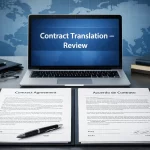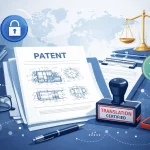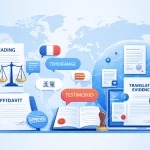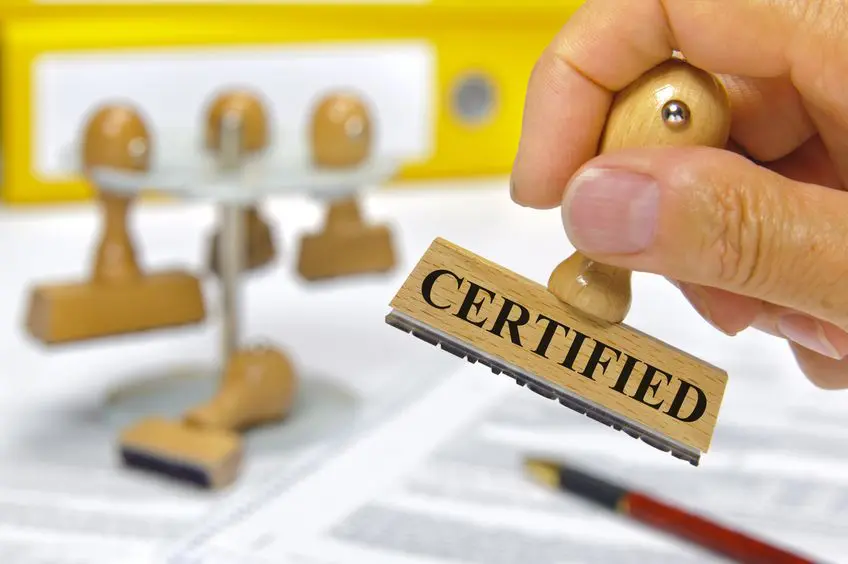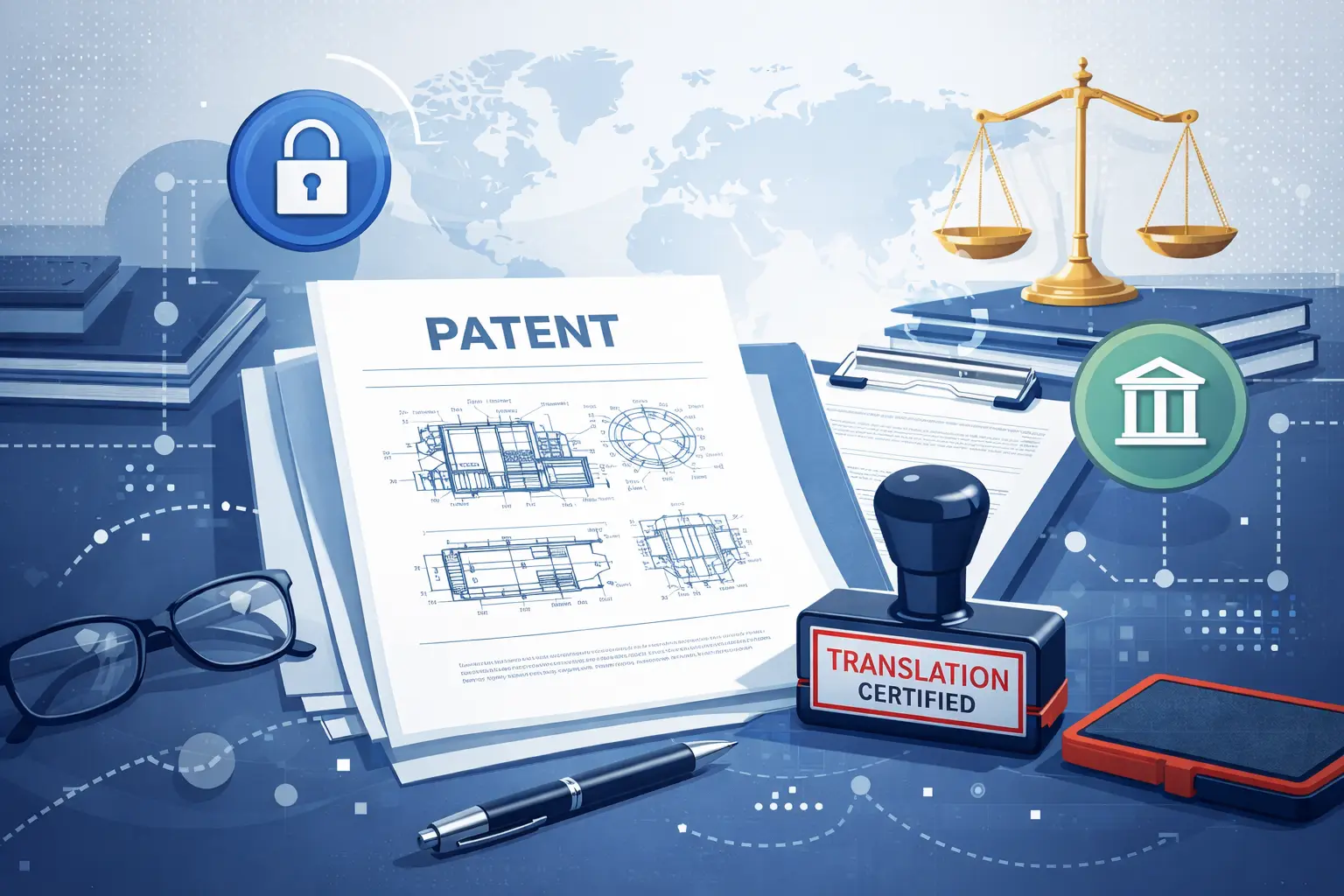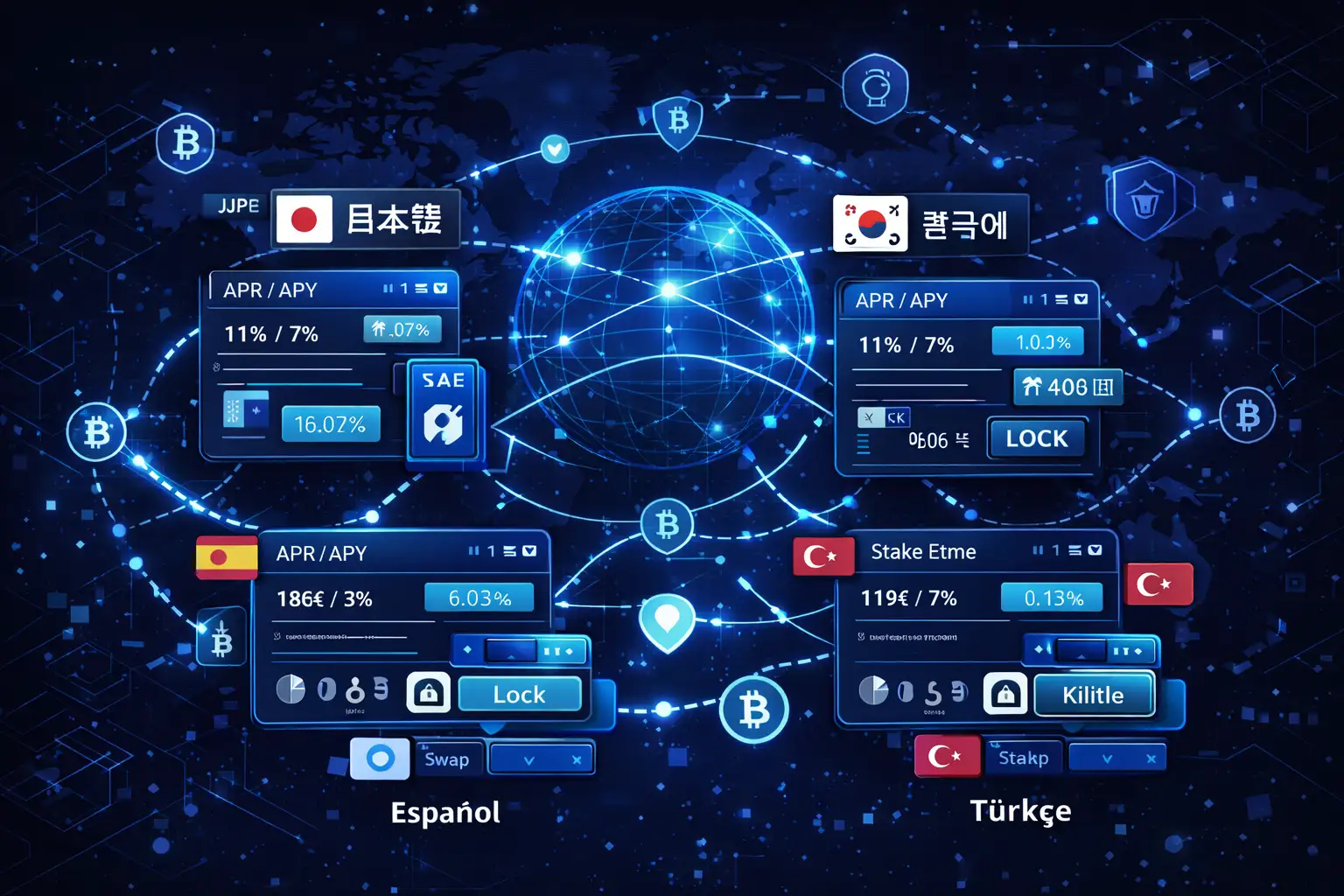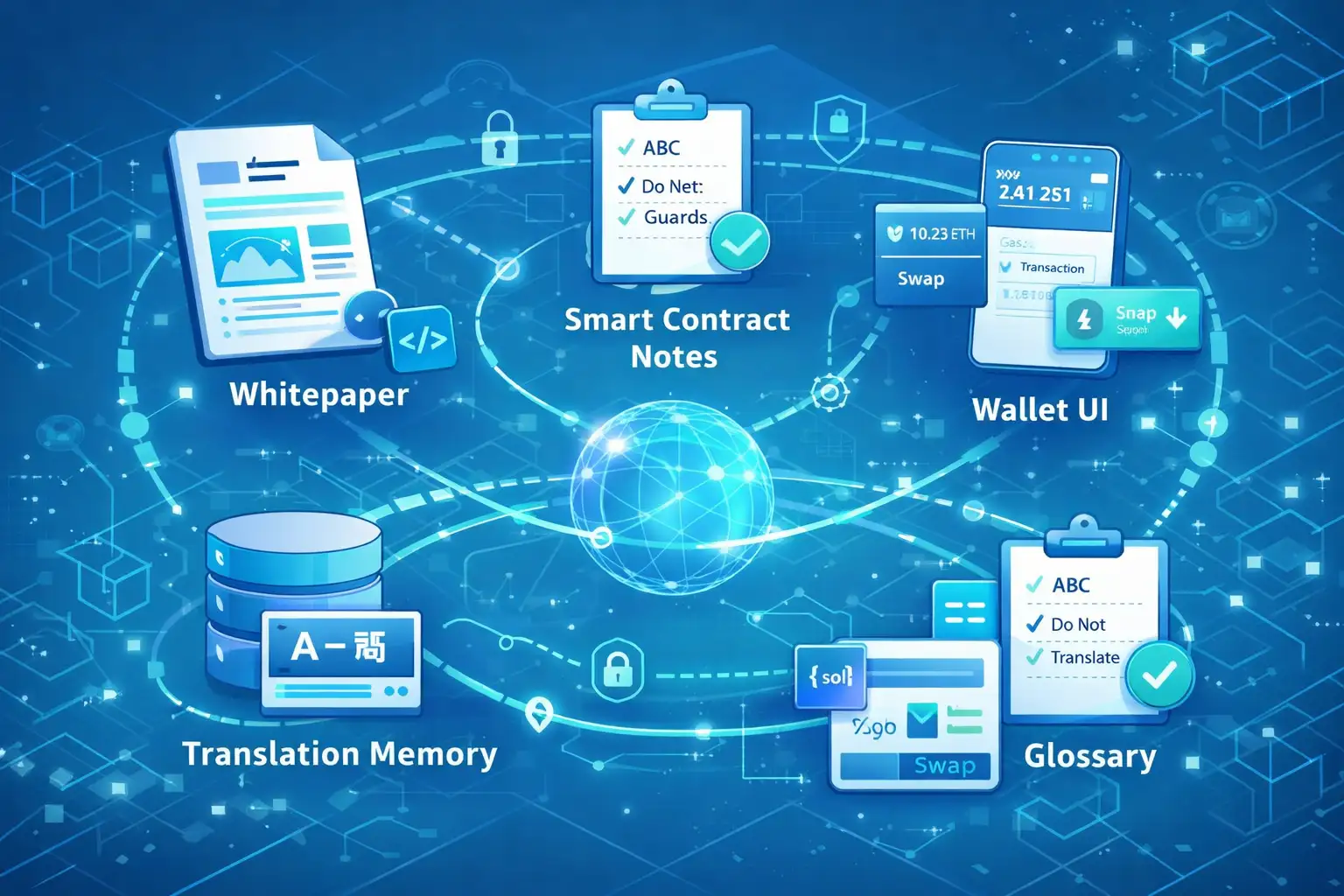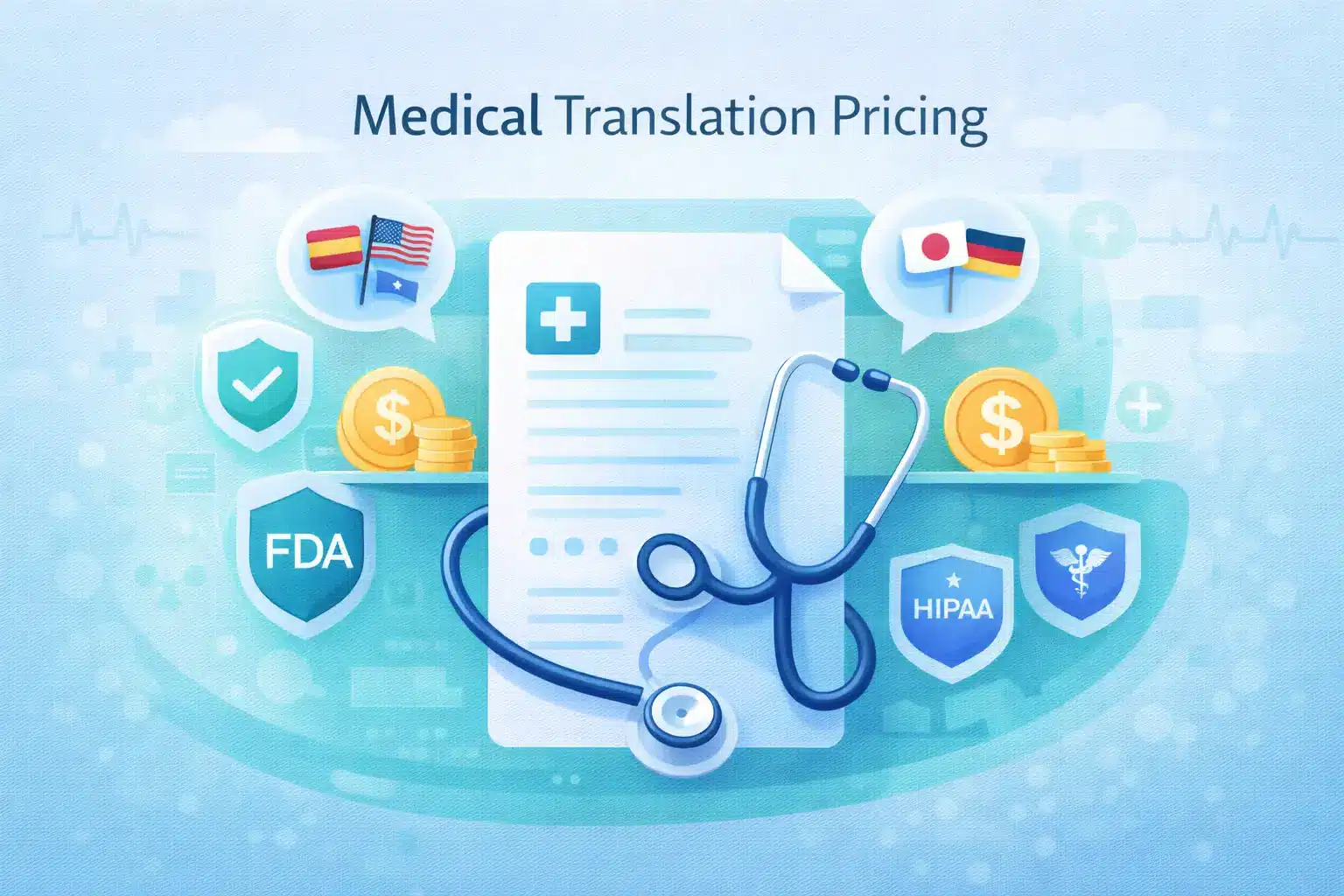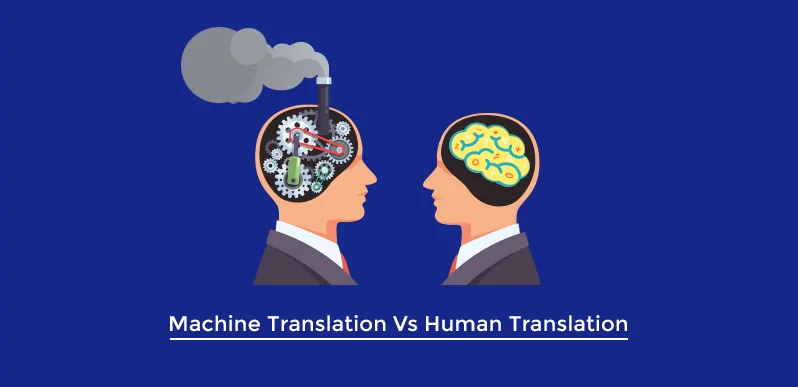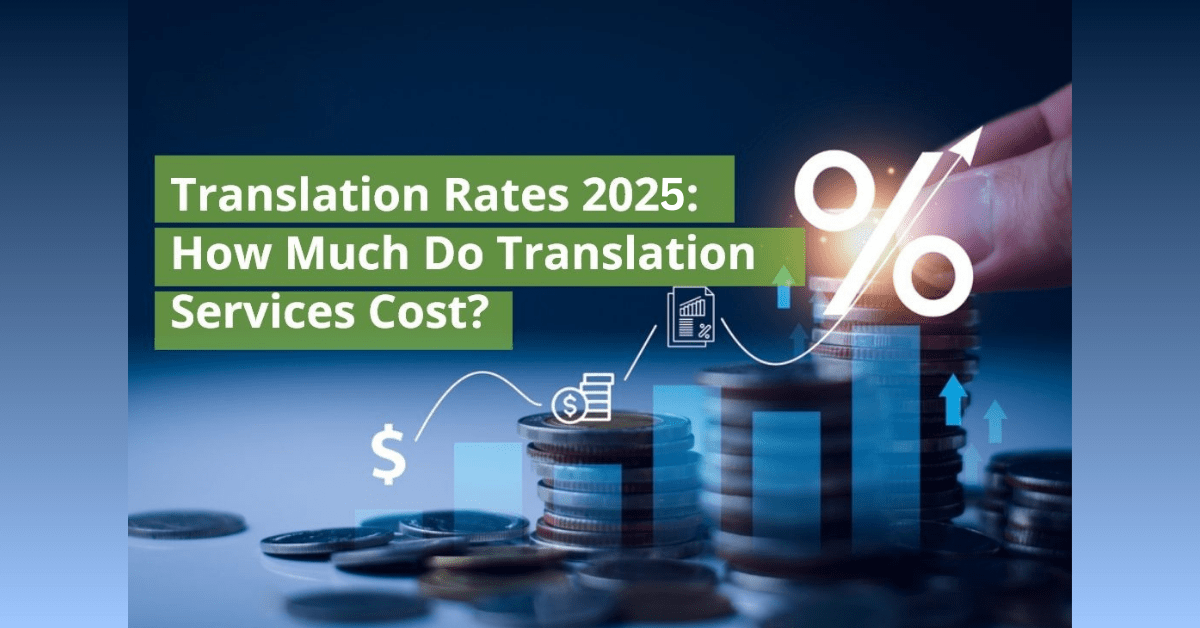Have you ever needed a document translated and wondered if it would be accepted by a government office, university, or legal authority? That’s where certified translation services come in. These services ensure your documents are not only translated accurately but also meet strict legal and professional requirements.
Whether it’s for a visa application, academic admissions, or business contracts, certified translations provide the trust and reliability you need when accuracy matters most. In this guide, you’ll learn how certified translation services can simplify complex processes and why they’re essential for navigating global systems with confidence.
What Are Certified Translation Services?
A certified translation is a legally recognized document translation accompanied by a signed statement, often called a “Certificate of Accuracy,” attesting to the translation’s completeness and accuracy. This certification ensures the translation meets the formal requirements for use in official procedures, such as immigration, legal filings, or academic applications.
The specific requirements for certified translations vary by country. For instance:
- In the United States, certified translations must meet standards set by organizations like the American Translators Association (ATA), ensuring the translator’s accountability and proficiency.
- In Europe, some nations require sworn translators authorized by government entities for certifications.
Language service providers, with their robust quality assurance processes and in-house linguists, often handle certified translations better than independent translators due to the added complexity of quality control and compliance.
Types of Documents Requiring Certification
Document translations services are essential for official documents that need to meet legal, professional, or institutional standards. Below are key categories of documents where certified translations are crucial:
- Personal Documents
These include birth certificates, marriage certificates, divorce decrees, and adoption papers.
Certified translations of personal documents are mandatory for immigration processes, citizenship applications, and family court proceedings. For instance, a translated birth certificate ensures compliance with government requirements during visa or residency applications. - Legal Documents
Legal translations cover documents such as contracts, court decisions, power of attorney, and affidavits.
Inaccuracies in legal translations can have severe consequences, such as disputes, delays, or document invalidation. Courts, attorneys, and government agencies require certified translations to ensure precision and adherence to local laws.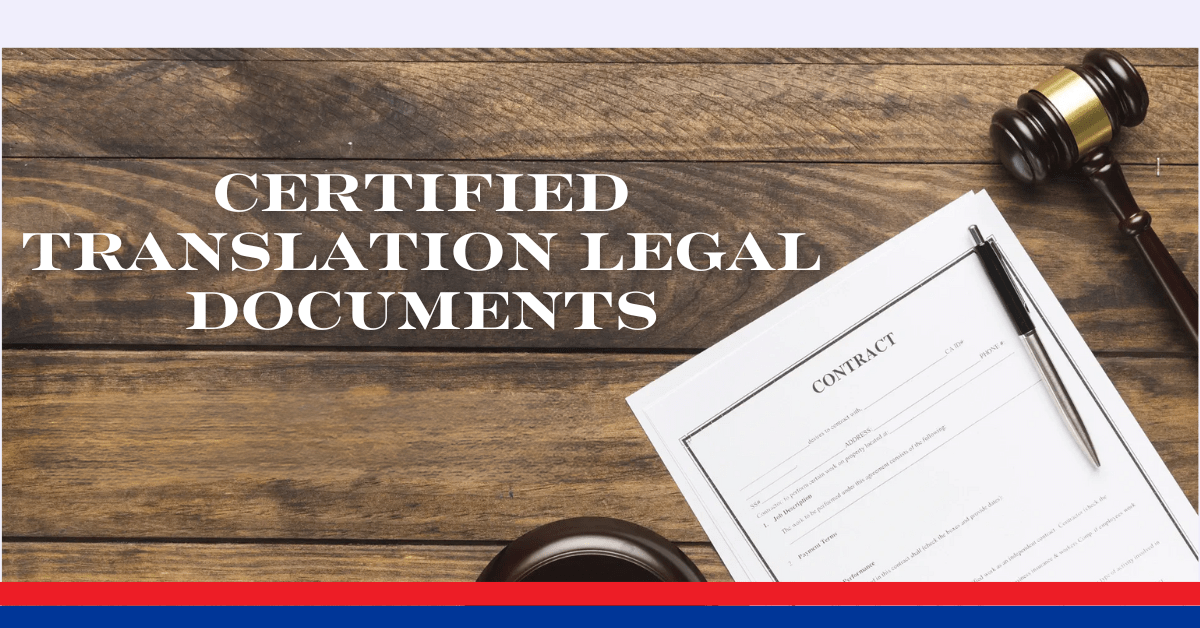
- Academic Records
This category includes diplomas, transcripts, letters of recommendation, and credential evaluations.
Educational institutions and employers rely on certified translations to verify qualifications for admissions, scholarships, or international job placements. Misinterpretations can hinder opportunities and delay career progression. - Medical Records
Documents like patient histories, lab reports, medical certificates, and insurance claims fall under this category.
Accuracy is critical in medical translations to prevent errors that could impact diagnosis, treatment, or claims processing. Certified translations ensure compliance with international healthcare regulations and smooth communication between medical providers and patients globally. - Business Documents
Examples include articles of incorporation, financial statements, annual reports, and intellectual property filings.
Businesses require certified translations to comply with international regulations, facilitate cross-border deals, and protect intellectual property. For instance, a misstep in translating a patent document can jeopardize its legal protection in a foreign market. - Government-Required Documents
These include passport copies, visa applications, and official identification papers.
Certified translations of government documents are essential for immigration offices, embassies, and border control authorities. Errors in translation can lead to delays, rejections, or even legal penalties.
For precise, legally accepted certified translations and professional document translation services, Circle Translations offers expertise, accuracy, and quick turnaround times to meet your needs.
.
Certification Standards in Translation
Certified translations adhere to globally recognized standards that ensure accuracy, reliability, and compliance with legal and professional requirements. These certifications validate the processes, qualifications, and quality assurance measures used in translation services.
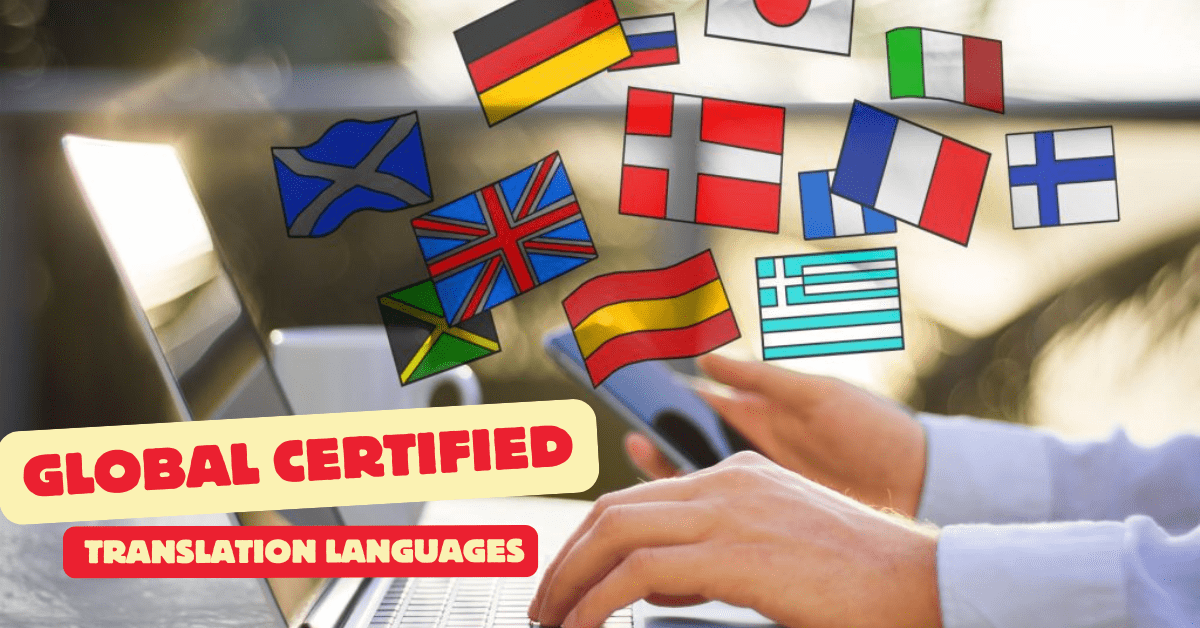
ISO 17100:2015 (Translation Services)
ISO 17100 sets the global standard for translation service providers. It outlines the core processes, resources, and requirements necessary to deliver high-quality translations. All translators, revisers, and proofreaders involved must meet minimum academic and professional qualifications.
Key elements of ISO 17100 include:
- Qualified Linguistic Resources: Ensures translators and revisers possess the required skills and expertise.
- Defined Project Workflows: Covers pre-production steps (quotes and agreements), production (translation and quality control), and post-production (client feedback and corrections).
- Quality Assurance: Mandates multi-step checks to ensure consistent and reliable outcomes.
An ISO 17100:2015-certified provider offers confidence that your translations are accurate, professionally managed, and legally compliant.
ATA Certification (American Translators Association)
The ATA certification validates individual translators’ skills and expertise in specific language pairs. Translators must pass rigorous exams to demonstrate their ability to deliver accurate and culturally appropriate translations.
Key benefits of ATA certification:
- Proven Competence: Translators are tested on precision, fluency, and understanding of the source and target languages.
- Professional Standards: ATA-certified translators adhere to strict ethical guidelines and quality expectations.
This certification is especially valuable for critical documents like immigration paperwork, legal filings, and academic credentials, where accuracy and professionalism are paramount.
ISO 9001:2015 (Quality Management)
ISO 9001 focuses on ensuring consistent quality management across industries, including translation services. While not specific to translation, it demonstrates a provider’s commitment to reliability and client satisfaction.
Highlights of ISO 9001 include:
- Streamlined Processes: Ensures efficient workflows from initial request to final delivery.
- Error Prevention: Focuses on minimizing mistakes and improving quality outcomes.
ISO 9001 certification adds an extra layer of confidence that a provider prioritizes service excellence.
ISO 27001:2013 (Information Security)
ISO 27001 ensures the secure handling of sensitive data during translation processes. It protects documents from unauthorized access, breaches, or data loss.
Key provisions include:
- Confidentiality Measures: Implements encrypted data storage and restricted access protocols.
- Compliance Assurance: Meets security standards required by industries like legal, medical, and corporate sectors.
For clients handling confidential legal contracts, medical records, or intellectual property, ISO 27001 certification guarantees peace of mind.
Certified translations following these standards ensure high quality and security, making them acceptable to institutions and authorities worldwide.
Choose Circle Translations for certified translations that comply with ISO 17100:2015, ATA standards, and more. We deliver quality and security you can trust—contact us today.
The Process of Certified Translation
The certified translation process ensures accuracy, compliance, and acceptance for official documents. Here are the key steps:
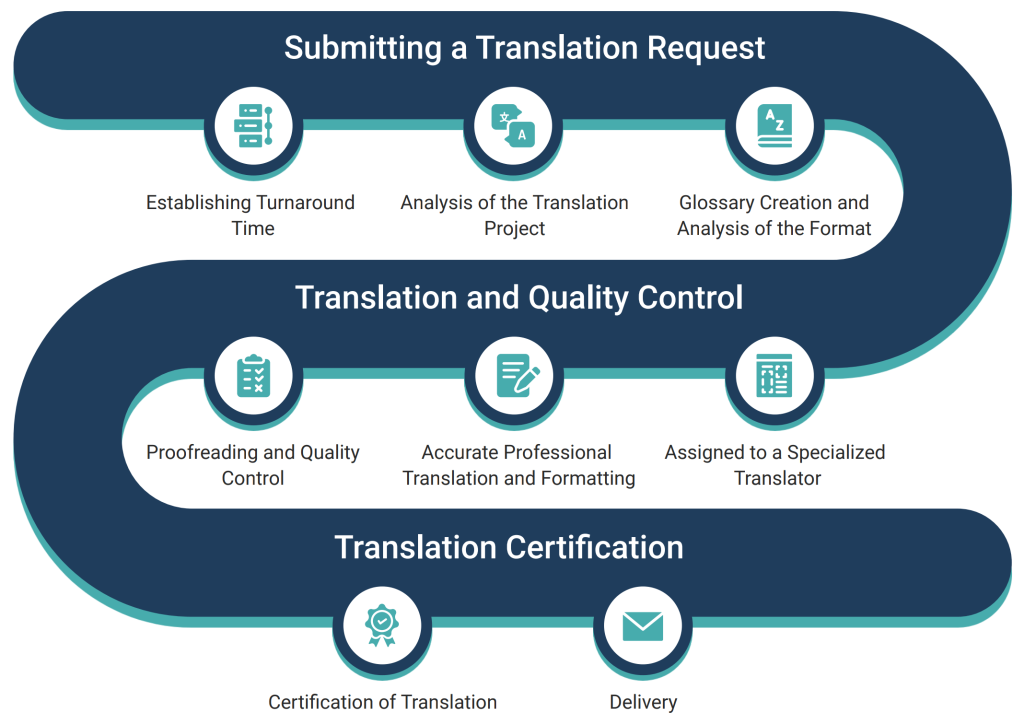
1.Document Submission
Submit your documents online or in person. Ensure the copy is clear and legible to avoid errors. Specify:
- The target language.
- The document’s purpose (e.g., visa applications or court filings).
- Any special requirements, like formatting or terminology.
Example: Immigration offices often require birth certificates to match exact formatting guidelines.
2.Translation by Certified Experts
A qualified translator converts your document into the target language while preserving:
- Accuracy: Including legal terms, seals, and formatting.
- Context: Ensuring tone and structure remain intact.
Example: Legal contracts need precise terminology to prevent misinterpretation.
3.Quality Assurance and Certification
The translation undergoes a rigorous review for grammar, formatting, and completeness. Once verified:
- A signed certificate of accuracy is attached.
- This statement confirms the translation’s validity for official use.
Why it matters: Certified translations are recognized by courts, universities, and immigration offices worldwide.
5.Notarization (If Needed)
For some jurisdictions, notarization adds an extra layer of credibility. A notary public verifies the translator’s credentials and attaches a notarial seal.
Example: International legal filings often require notarized translations.
5.Delivery
The final translation is delivered in your preferred format—digital or physical. Expedited options are available for urgent requests.
Every step guarantees that your documents are accurate, legally compliant, and ready for submission without delays. Certified translations give you confidence that your documents will be accepted globally.
Need certified translations delivered quickly and accurately? Circle Translations follows a streamlined process to ensure compliance and acceptance every time.
How Certification Ensures Accuracy and Credibility
Certified translations ensure accuracy, reliability, and compliance with legal, academic, and professional requirements. This is achieved through a careful process that guarantees precision at every step.
-
Expertise of Certified Translators
Certified translations are handled by qualified professionals who:
- Master Both Languages: Translators have native-level fluency in the source and target languages to ensure accurate meaning.
- Specialize in Subject Areas: Experts work with complex terms in fields like legal, medical, or academic translations.
Example: In medical translations, precise terminology prevents errors that could impact diagnoses or treatments.
-
Rigorous Quality Control
Every certified translation undergoes strict quality checks to:
- Ensure Accuracy: Contextual and linguistic reviews eliminate errors.
- Replicate Authenticity: Formatting, seals, and visuals match the original document to maintain credibility.
These checks ensure the document meets the standards required for legal or professional use.
-
Certification Statement: Legal Validation
A certificate of accuracy accompanies each certified translation. It includes:
- A declaration that the translation is accurate and complete.
- The translator’s or agency’s credentials.
- A signature and date, ensuring legal recognition.
Why it matters: Without this certification, documents may face rejection by immigration offices, courts, or universities.
-
Global Acceptance by Authorities
Certified translations are accepted by:
- Immigration Offices: For visas, citizenship, or residency.
- Educational Institutions: To verify transcripts, diplomas, or letters.
- Courts and Legal Systems: For affidavits, contracts, and legal filings.
Example: An immigration officer may reject uncertified translations, delaying the application process.
-
Building Accountability and Trust
Certified translations ensure accountability by:
- Backing accuracy with professional qualifications.
- Providing transparency through signed certification.
For clients, this guarantees that documents will meet official standards and pass verification without issues.
Ensure your documents meet global standards with certified translations from Circle Translations. Accuracy, trust, and compliance—every time.
Key Benefits of Certified Translation Services
Certified translation services offer far more than just language conversion. They ensure your documents meet the highest standards of accuracy, security, and legal compliance for official use worldwide.
Quick Overview:
Refer to the table above for a concise summary of the key benefits certified translations provide.
| Benefit | What It Offers |
| Legal and Official Acceptance | Recognized by courts, immigration offices, and academic institutions. |
| Accuracy and Reliability | Ensures error-free, precise translations that match the original document. |
| Compliance with Standards | Adheres to ISO 17100:2015 and ATA certification for quality and professionalism. |
| Confidentiality | Secure document handling with NDAs and encrypted file transfers. |
| Global Accessibility | Accepted internationally, meeting legal and cultural requirements. |
Below let’s look deeper into how these benefits add real value to your documents:
1. Legal and Official Acceptance
Certified translations are recognized by:
- Government authorities: For immigration, citizenship, and visa applications.
- Courts and legal bodies: For contracts, affidavits, and court filings.
- Academic institutions: For admissions requiring diplomas or transcripts.
Example: A certified birth certificate ensures compliance with immigration laws and avoids processing delays.
2. Accuracy and Reliability
Certified translations are handled by qualified professionals who guarantee:
- Linguistic precision: Error-free translations that match the original document’s meaning.
- Contextual accuracy: Preserving tone, intent, and formatting.
Why it matters: A minor error in a legal contract or medical report can result in costly consequences or misinterpretation.
3. Compliance with International Standards
Certified translation services meet globally recognized benchmarks, including:
- ISO 17100:2015: Ensures high-quality workflows and qualified translators.
- ATA Certification: Demonstrates translator expertise in specific language pairs.
These standards provide confidence that your translation is both professional and compliant.
4. Ensured Confidentiality
Certified translation services follow strict data security protocols to protect sensitive information. Professional agencies often comply with standards like ISO 27001, ensuring secure document handling.
- Secure Processes: Encrypted file transfers and restricted access to maintain privacy.
- Non-Disclosure Agreements: Translators and staff sign NDAs to guarantee confidentiality.
Benefit: This is critical for documents containing personal, legal, or business-sensitive data, such as medical records or financial agreements.
5. Global Accessibility
Certified translations ensure your documents meet local and international requirements:
- Cultural adaptation: Respecting legal and cultural norms.
- Cross-border recognition: Accepted worldwide for official purposes.
Benefit: Whether for immigration, business expansion, or academic admissions, certified translations simplify international processes.
6. Peace of Mind
Certified translations eliminate the risk of rejection or delays. You get:
- Accuracy assurance: Professionally handled documents.
- Time and cost savings: Avoid repeated submissions or rejections.
With certified services, you can submit your documents confidently, knowing they meet all necessary requirements.
Key Industries Relying on Certified Translations
Certified translation services are crucial for industries that require accuracy, compliance, and global trust. Here’s a list of the top industries that depend on certified translations:
- Legal
- Contracts, affidavits, court documents, and intellectual property filings.
- Medical and Healthcare
- Patient records, clinical trials, prescriptions, and insurance claims.
- Education and Academia
- Diplomas, transcripts, research papers, and academic credentials.
- Business and Finance
- Financial statements, corporate agreements, investment proposals, and reports.
- Technology and IT
- Software localization, technical manuals, and user guides.
- Tourism and Hospitality
- Travel itineraries, brochures, websites, and booking systems.
- Manufacturing
- Product manuals, safety instructions, and compliance certificates.
- Retail and E-Commerce
- Product descriptions, websites, and customer support communications.
- Entertainment and Media
- Subtitles, video scripts, and marketing materials.
- Government and Non-Profit
- Legal notices, public policies, and community outreach programs.
How to Choose Reliable Certified Translation Services
Selecting the right certified translation provider ensures your documents are accurate, legally compliant, and delivered on time. With numerous providers available, it’s important to evaluate them based on key factors like certifications, customer feedback, pricing, and service quality.
This guide outlines the critical questions to ask, the importance of broad language coverage, and the value of user-friendly ordering and responsive customer support to help you make a confident, informed decision.
Step-by-Step Guide to Choosing a Certified Translation Provider
Follow this guide to evaluate certifications, language coverage, confidentiality, and service quality for a reliable translation provider
1. Certifications and Expertise
- Look for Industry Certifications: Ensure the provider is certified under globally recognized standards like ISO 17100:2015 (for quality management) or accredited by professional bodies such as the American Translators Association (ATA).
- Verify Translator Qualifications: Confirm that translators are:
- Native speakers of the target language.
- Experts in your field (e.g., legal, medical, or technical translation).
- Why It Matters: Certified providers ensure compliance with global standards and assign qualified professionals to handle specialized content.
2. Language Support
- Broad Coverage: Ensure the provider offers translations for your required languages, from widely spoken ones (e.g., English, French, Chinese) to rare dialects.
- Industry-Specific Knowledge: For technical fields like law or medicine, the translator must understand the nuances and jargon of the industry.
Pro Tip: Ask if the provider can handle unique requests, such as translating a regional dialect or meeting specific cultural expectations.
3. Confidentiality and Security
- Check Security Measures: Ensure the agency uses encrypted platforms for file transfers and complies with standards like ISO 27001 for information security.
- Non-Disclosure Agreements (NDAs): Providers should sign NDAs for added protection of sensitive information.
Example: For legal contracts or medical records, a secure process ensures your data is protected from breaches.
4. Quality Assurance Process
- Multi-Step Review: A reliable provider should follow a detailed workflow:
- Translation → Editing → Proofreading → Final Review.
- Use of Glossaries and Style Guides: These tools ensure consistency and accuracy, especially for technical or repetitive content.
Why It Matters: A robust quality assurance process reduces errors and ensures that your documents meet professional and legal standards.
5. Ease of Ordering and Customer Support
- Simple Online Ordering: Choose a provider with secure and user-friendly platforms to upload documents, specify requirements, and receive quotes instantly.
- Responsive Communication: Reliable providers offer multiple support channels (email, live chat, phone) and respond quickly to inquiries.
Pro Tip: Ask if they provide order tracking or real-time updates to keep you informed about your project’s progress.
6. Turnaround Time and Cost
- Timely Delivery: Ensure the provider can meet your deadlines, especially for time-sensitive documents like visa applications or legal filings.
- Transparent Pricing: Request detailed quotes to understand pricing structures (per word, page, or project). Clarify any additional charges, such as notarization or expedited delivery.
Example: A trustworthy provider should deliver a notarized birth certificate translation within the promised time frame, with no hidden fees.
How Circle Translations Can Help
At Circle Translations, we provide certified translation services tailored to your needs:
- ISO 17100 Certified Quality: Guaranteed accuracy and professionalism.
- Global Language Coverage: From common languages to rare dialects, we have you covered.
- Secure Process: Encrypted platforms and NDAs ensure your data’s confidentiality.
- Fast and Transparent Service: Timely delivery with clear pricing—no surprises.
Contact us today to simplify your translation process and ensure your documents are accurate, secure, and accepted worldwide.
FAQs
1.How Much Does It Cost to Translate a Certificate?
The cost typically ranges from $0.10 to $0.20 per word for common languages like English to Spanish. Specialized translations, such as legal or medical documents, may cost up to $0.30 per word. For standard certificates like birth or marriage documents, flat rates often range between $25 and $100 per page. Request a detailed quote to understand pricing for your specific needs.
2.How Long Does It Take to Get a Certified Translation?
Most standard documents are translated within 1–2 business days, while longer or complex documents may take 5–7 business days. Expedited services are available for urgent requests, with delivery within 24–48 hours for an additional fee. If physical copies are required, allow another 1–2 days for postage.
3.How to Get Documents Officially Translated?
To get a document officially translated, hire a professional translation agency or a qualified freelance translator. Begin by gathering the documents you need translated, request quotes from providers, and choose a certified translator for your language pair. For certified translations, ensure the provider includes a signed declaration of accuracy and, if required, notarization.
4.How Do I Know if a Translation Is Certified?
A certified translation includes a signed statement attesting to its accuracy and completeness. Each page of the translation is stamped or initialed to prevent tampering, and the provider should offer proof of their credentials, such as ISO 17100 certification or ATA accreditation.
5.Do I Need a Certified Translation?
Certified translations are required for documents submitted to government authorities, courts, educational institutions, or other official organizations. These include immigration applications, academic admissions, and legal filings where the accuracy and authenticity of the translation must be legally validated.
6.What Is an ATA-Certified Translator?
An ATA-certified translator is accredited by the American Translators Association, a respected organization that ensures competence in specific language pairs. This certification is a widely recognized credential, particularly in the U.S., and assures high standards of accuracy and professionalism in translations.
7.What Happens if a Certified Translation Is Rejected?
Rejections are rare if the translation is done by a reputable provider. However, they can occur if the provider’s credentials do not meet the requesting authority’s requirements. To avoid issues, verify the provider’s qualifications beforehand. Most certified translation services offer revision policies to address any minor concerns.
8.Can Certified Translations Be Revised After Delivery?
Yes, certified translations can usually be revised if errors are found or additional details need to be included. Reputable providers offer clear revision policies, so check with your provider to ensure they can accommodate updates if required.
9.Can a Certified Translation Be Notarized?
Yes, many certified translation providers offer notarization services. This involves a notary public verifying the translator’s identity and certifying their statement of accuracy. Notarization is often required for legal, immigration, or international documents.
10.What Documents Commonly Require Certified Translations?
Documents that commonly require certified translations include birth and marriage certificates, legal contracts, court orders, academic transcripts, diplomas, and medical records. Always confirm the requirements of the institution or authority requesting the translation.
- What Is a 推薦 Translation Service?
A 推薦 translation service refers to a recommended translation service that provides accurate and reliable document translations. These services are trusted for their expertise in certified translations, meeting legal and professional standards. Whether you need translations for immigration, academic, or legal purposes, choosing a 推薦 translation service ensures your documents are recognized and accepted globally.
Conclusion
In conclusion, certified translation services are vital for ensuring the accuracy, legal compliance, and global acceptance of your documents. They provide peace of mind for high-stakes applications, from immigration and legal filings to academic and business needs. A trusted provider guarantees precision, confidentiality, and compliance with international standards, avoiding delays and costly errors.
Simplify your translation process with Circle Translations—offering professional, certified solutions designed to meet your needs quickly and accurately. Contact us today to get started




